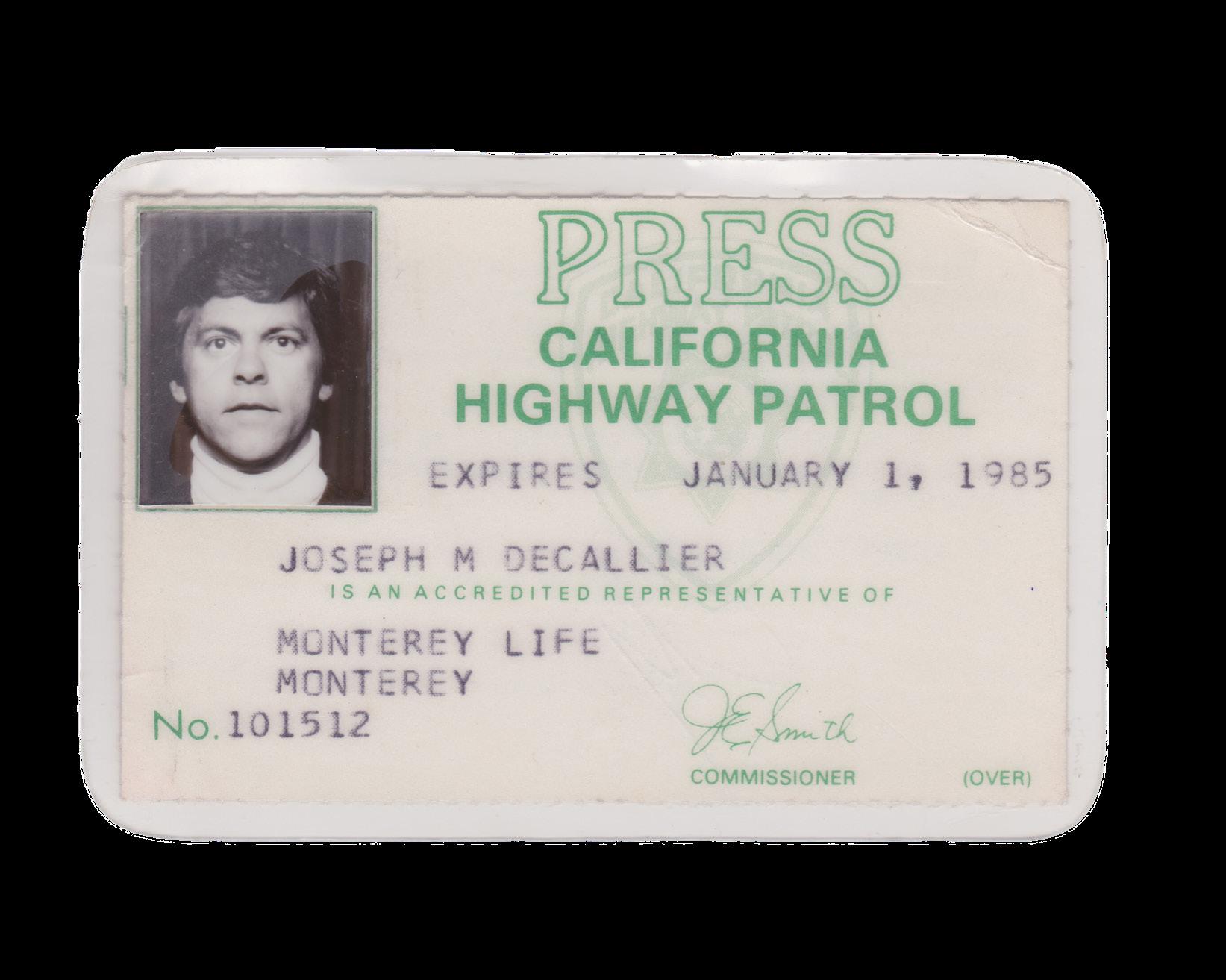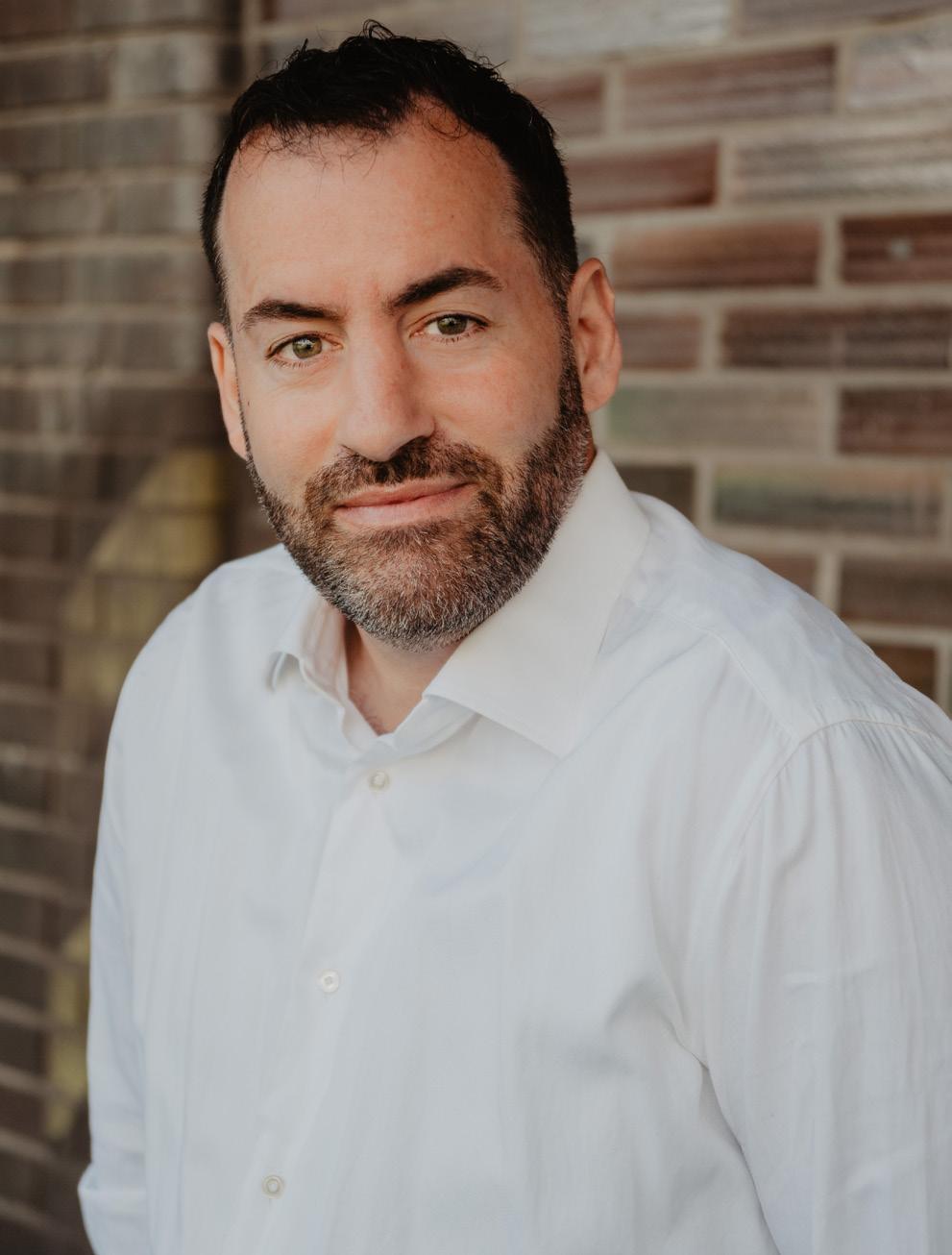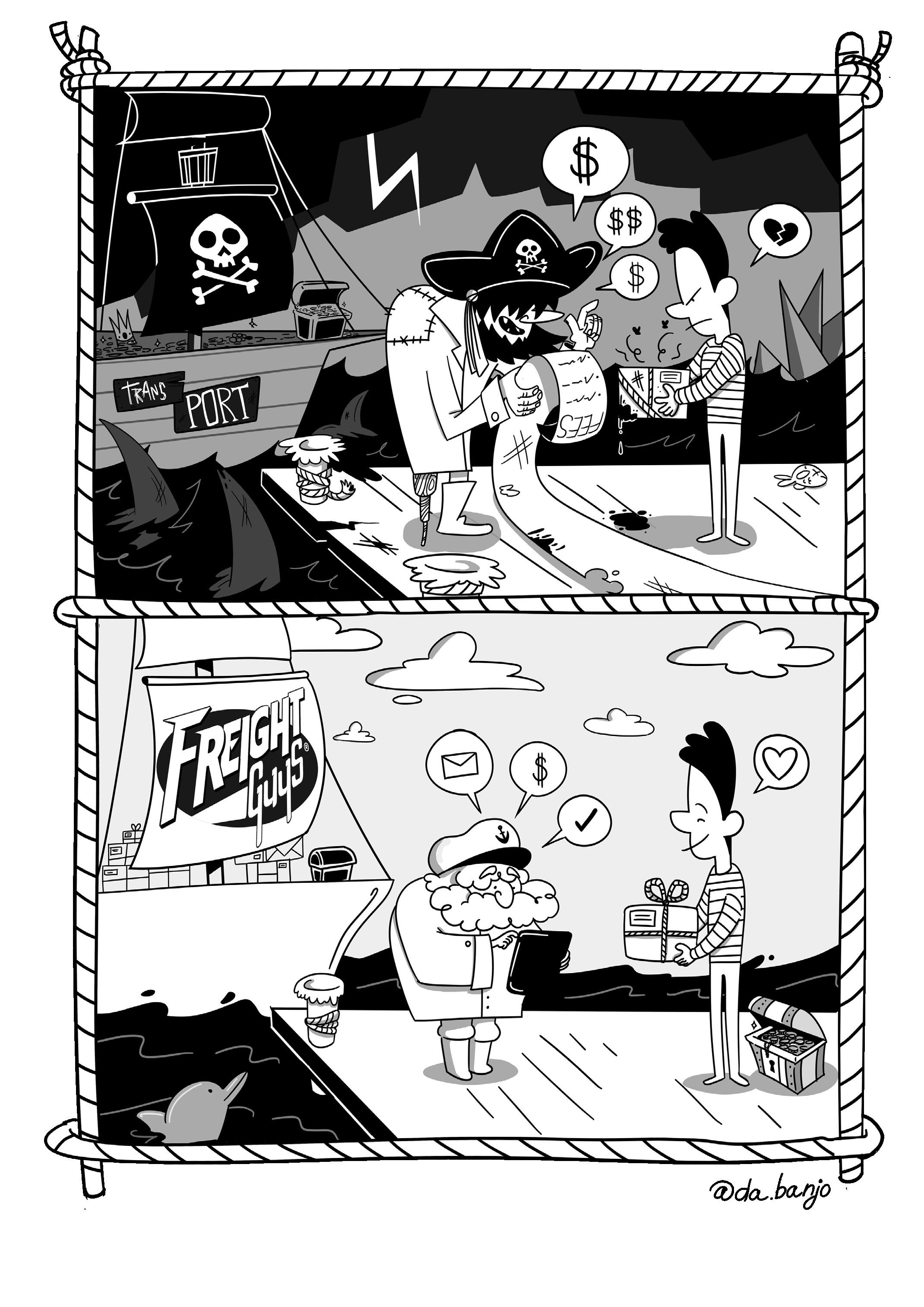
9 minute read
The Business of Leadership Interview Pepper de Callier
The Business of Leadership
A Conversation with Pepper de Callier
Advertisement
By Anna West
I met with Pepper de Callier over Zoom, though a distance of only five kilometers separated us. We had both been quarantined for over two months at the time and, over a spotty WiFi connection, we discussed the new realities of social and physical distancing. “This is something that I am discussing with my clients,” de Callier told me. As a leadership coach, he was helping his clients, business executives at some of the top companies in the world, navigate how to lead teams – from a distance. Even leaders need to be led sometimes.
De Callier is what others have described as an authority on leadership. He has devoted much of his career to counselling and coaching executives, most recently as the founder and executive director of the Prague Leadership Institute, an organisation with the mission to “create the centre of excellence for the development of high-performance 21st-century leaders.” Formerly a consultant at executive search and consulting firms Spencer Stuart and Heidrick & Struggles, de Callier has advised executives from global behemoths like Microsoft, Boeing, General Electric, and Merck, as well as notable Czech and Slovak firms TV Nova, Česká spořitelna, and Slovak Telekom. He is also the founder and chairman of the supervisory board of Aspen Institute Prague.
In his own words, de Callier “helps leaders and boards see themselves through the eyes of other people.” From talking to de Callier, it is evident that he is a keen observer of people. He is also a great storyteller, and uses storytelling as a way to relate to people. He insists, however, that in his work he does not prescribe solutions. Rather he employs Socratic questioning, a method whereby he asks questions so that his clients may reach answers on their own. “Through that mechanism, we can determine where you are, what needs to be looked at, and what you want to get. It’s understanding the causal relationship between what you think, say, and do, and what happens around you,” he said. De Callier has lived in Prague for almost 17 years. He and his wife fell in love with the city and have since made it their permanent residence. “This is our home. We love it. The people and the history. We plan to be here for the rest of our lives,” he said. In addition to his executive coaching work, de Callier serves as chair of the board of trustees of the Lobkowicz collection. Those familiar with Prague will know the Lobkowicz Palace, which is part of the Prague Castle complex. The palace houses the Lobkowicz collection, the oldest and largest privately owned art collection in the Czech Republic. Both the collection and the palace are owned by the Lobkowicz family, one of the oldest Bohemian noble families in Central Europe. During the forced occupation of Czechoslovakia by the Nazis and during the period of communist rule, the collection was dispersed. Now, as chairman of the board, de Callier helps to uphold the mission of the organisation, which is to preserve, protect, and share with the public the art, artifacts, and buildings that were returned to the family after the 1989 Velvet Revolution in Czechoslovakia. De Callier jokes that he has had a hard time retiring.
Before he became well-known for his work in the business community, de Callier came from rather humble beginnings. He was raised in the middle of farm country in central Indiana, which he remembers as idyllic. De Callier likened his childhood and teenage years to the classic coming-of-age film American Graffiti.
De Callier’s mother was his first business mentor. She was a senior business executive, which was unconventional in the 1950s, when most women in the United States held positions as secretaries, clerical workers, household workers, or teachers. De Callier remembered that his mother let him cut school once a month to attend her business meetings after she saw his fascination with the sales process. “I fell in love with the whole concept of influencing the decisions of other people,” said de Callier. However, his early experiences with business leadership did not immediately lead to a successful career. “I was a discipline problem,” he admitted. After being kicked out of high school, de Callier’s grandfather signed him up for barber school in Indianapolis. He became a barber in a rougher neighborhood in the city before receiving a life-changing call from his old teacher – the very one who had expelled him from high school.
“Edwin P. White. I will never forget his name,” he told me. White convinced de Callier to go on with his education. He ended up sponsoring him at the University of Arizona, where de Callier got his bachelor's degree. Years later, de Callier wrote in his recurring column for Hospodářské noviny about that fateful phone call. For him, it was a turning point. “If you can make a phone call like that, make it. Change someone’s life,” he said. “It was an experience that made me understand just how not special I am, just how human I am. In my work with people, the reason that I think I’m effective is because I have experienced enough setbacks in my own life … I know what it’s like to overcome that, so I know it's possible. I’m not afraid to share that with people because I don’t want to be looked at as something different, I want to be looked at as someone who didn't give up, who saw that there was a way to learn and grow.”
After attending university, de Callier went on to receive further education at Stanford and later became a salesman at Aetna insurance company. He rose through the ranks and ended up training other insurance agents. Later, he was recruited to the Philadelphia Life Insurance Company, where in his first year he sold the largest insurance policy ever sold by the company at the time – $23 million on the life of one person. De Callier later became disenchanted with his work. In this transitional period, he almost moved his family to Marlow, a small town outside of London known for being the place where Izaak Walton wrote The Compleat Angler. Instead, de Callier was recruited to become the publisher of Monterey Life, a magazine based in Carmel, California. Despite his lack of experience in the publishing industry, de Callier revitalised the magazine, in part by strengthening the editorial content and working with famous photographers like Ansel Adams.

Critical moments of transition, like the ones that de Callier experienced in his lifetime, are among the most common challenges faced by business executives, and one of the reasons that leaders seek out his services. “It can come from a downturn in a marketplace, or something like the coronavirus pandemic that we are currently going through,” explained de Callier. “In times like these, resilience matters. You can't be resilient unless you’re engaged. You can’t be engaged unless you trust, and you can’t trust unless you know.”
Unfortunately, with instability in the global markets and unemployment soaring in the global workforce, it seems that as a society we are facing a critical turning point such as the one that de Callier described. As our Zoom session came to a close, I asked de Callier what he can glean from his past experiences, his circuitous career path, and what he could recommend to executives and non-executives alike experiencing a transition. “I was not afraid to reinvent myself,” de Callier said. “That is what transition is all about. It's finding new ways to be authentic. This is not my quote, but the Stone Age didn’t end because we ran out of stones, it ended because we started using new tools.” Like de Callier’s unexpected opportunity to join Monterey Life, being open to opportunities that arise, that are outside the confines of one’s resumé, is where self-discovery begins.
Photos provided for this article are from Pepper de Callier’s private collection
SUMI GARDEN Discover the True Taste of Japan

Welcome to Sumi Garden, your very own little slice of Japan in the centre of Prague. Enjoy unique Japanese delicacies whilst surrounded by the warm and hospitable atmosphere of a true Japanese Sushi-ya (Sushi Bar).
Sample the delectable flavours of sushi, perfectly paired with high-quality Sake as well as our famous Kushiyaki (skewers) known for the true umami flavor of grilled meat, complemented with a cold Asahi beer, or perhaps one of our many other exciting dishes.

Sumi garden guides you through the journey with fulfillment of your own memories and experiences, and stimulates all of your senses.

Freight Guys
Taking the stress out of shipping
Over the past decade, FreightGuys has been helping its North American customers to eliminate the hassle behind sending cargo abroad. Through harnessing technology in a traditional industry. Now we are happy to introduce it to the Czech market. Founder Micha Leinwand built the company from humble beginnings and with a clear vision. “We work in an industry that tends to over promise and under deliver. That is not the sort of business that I wanted to create. Our mission is to provide a quality service that, in an increasingly busy and interconnected world, places convenience and efficiency at the core of its philosophy whilst putting our customers first in everything that we do.”
Shipping can be a tricky business and people will all too often hire the services of the first provider that shows up in an internet search, usually resulting in the customer being heavily overcharged. The alternative is to conduct research between the plethora of companies advertising their services which can be tedious and highly inefficient.
FreightGuys takes away the fuss by providing its clients with all available shipping options on just one screen. Our quick turnaround on quotes is unparalleled within the market and customers can expect to receive competitive prices complemented with a first-class service for any type of freight, no matter the shape or size. Micha Leinwand For more than ten years, we have helped many happy customers to ship cargo to destinations all over the world. Our success is predominantly down to the value we place on customer service which derives from Micha’s background growing up in an honest and hardworking farming community in Israel. ”The sort of work ethic I was taught growing up is how I approach my business. Life lessons on the fields; a time to reap, a time to sow. It can be unpredictable too and we currently live in such times. People are still going to need people to keep food on the table. I like to think that we’re doing our part, in keeping things moving forward.”

www.freightguys.com










